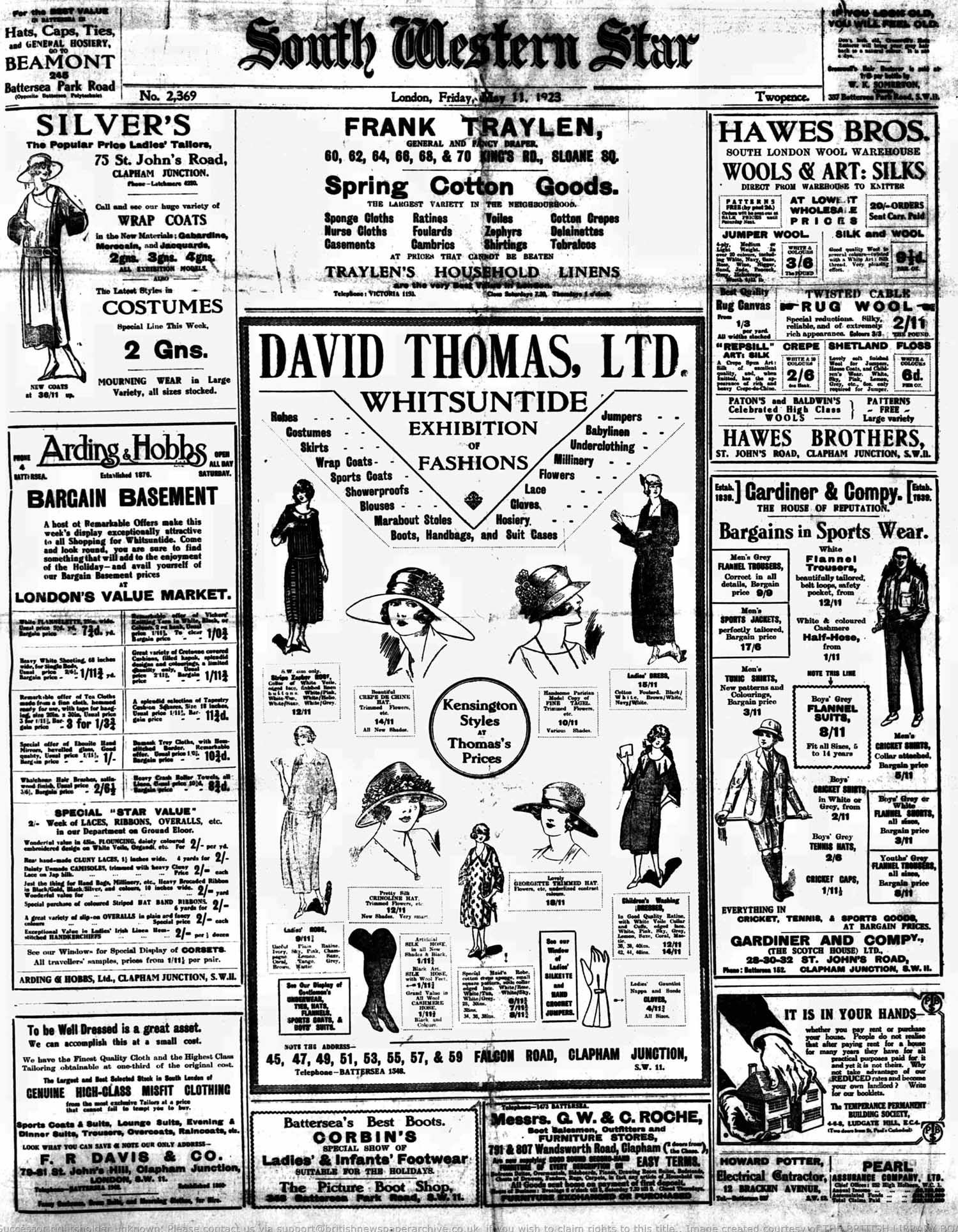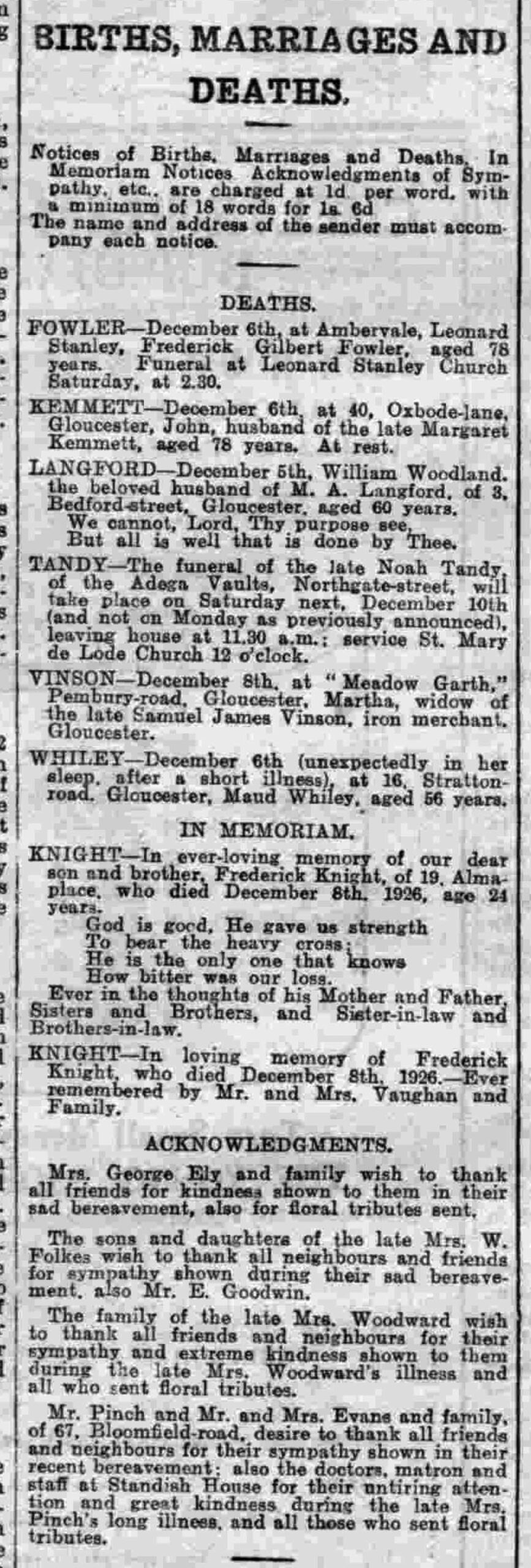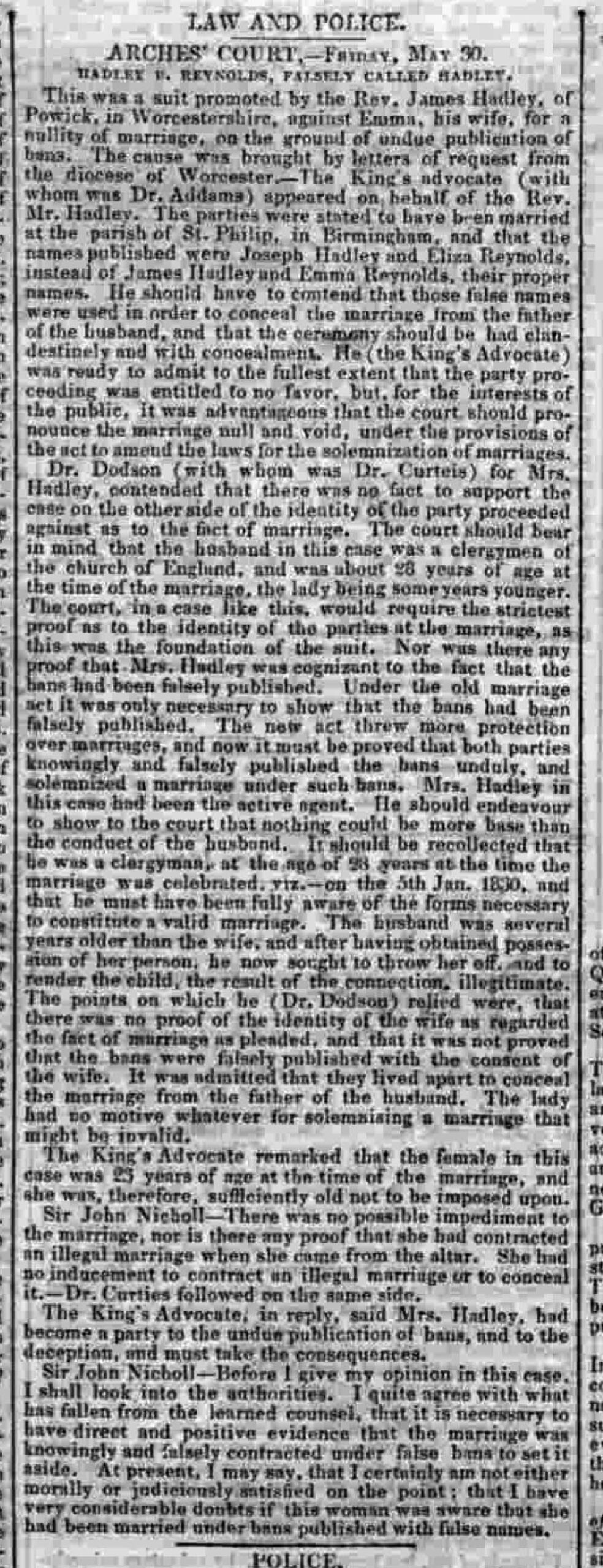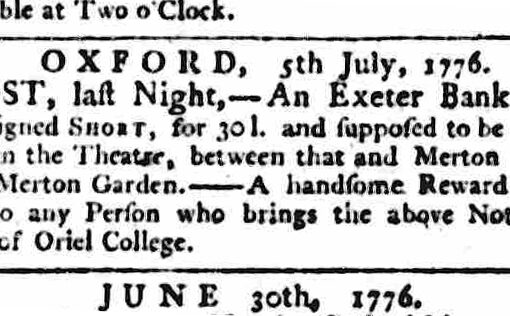South Western Star – Friday 11 May 1923
“THAT’S ROBBERY—HIGHWAY ROBBERY.”

Two Battersea boys, Percy Newcombe (11), 98 Livingstone-road, and John Johnson (9), 91 Livingstone-road, were charged on remand with stealing a £1 note belonging to Mrs. Taylor, of Peter’s-place, Battersea, from her son.
Last week Detective Bond stated that Johnson told him that Newcombe held the boy’s hands up while he (Johnson) took the note from his pocket. Both boys pleaded guilty.
Reports were handed up by Mr. Winter and Miss Cheshire, the probation officers.
Detective Bond stated that the boy Taylor was seven years old. Defendants went up to him and said, “Hands up,” and Johnson’s father went in search of his son as soon as he heard about the matter and brought the note and the boy to Lavender Hill Police Station about an hour after the note had been taken from the small boy.
Mr. Rooth remarked that the boys had respectable parents, and the school report showed that the boys had good characters.
Mr. Winter: The parents are respectable working-class people.
Mr. Rooth: What made you do this, Newcombe? What right had you to hold up a small boy and empty his pockets? Have you ever done this sort of thing before?
Newcombe: No.
Mr. Rooth: Where did you get to hear about it? Who told you?
Newcombe: Nobody.
Mr. Rooth: What made you do it, Johnson?
Johnson’s reply was in a whisper and audible only to the bench.
Mr. Rooth: That’s robbery—highway robbery.
Johnson’s father said he got his living by selling cut flowers seven days a week. He had four sons in the Navy, and it broke his heart to see a son of his charged. “I only ask you to give him one chance,” he tearfully added.
Mr. Rooth: You think you have control over him?
The Father: Yes. I put it down—this “Hands up”—to the picture galleries. He sometimes goes on Saturdays. One day he came back and said, “Hands up, dad, for a ha’penny.” I’ve brought twelve of my sons into the world. I’m 65 years of age and had 20 years’ service in the Navy. When I heard about this note, I searched the street for him and found him.
Mrs. Newcombe addressed the bench in a low tone on behalf of her son.
Mr. Rooth said the case was very serious. He might have sent the accused away for a long term of years. He would make a probation order, taking the parents’ sureties. “If you go to the pictures again,” he added, “don’t learn any more of this rubbishy stuff. These pictures are pure imagination, made up and manufactured to interest people. I hope this will be a lesson to you.”
The Parents: Thank you, sir.
Mr. Rooth told them that Miss Cheshire, the probation officer, would exercise supervision over defendants for 12 months.
Explanation:
The article describes a court case from Battersea in which two young boys, aged 11 and 9, were charged with stealing a £1 note from a 7-year-old boy. The case is referred to as “highway robbery” by Mr. Rooth, who presided over the matter, though he recognised that the boys came from respectable families with no prior history of wrongdoing. Instead of imposing a severe punishment, he placed the boys under probation for 12 months, with their parents acting as sureties.
Analysis:
- Social Context:
- The case reflects the social and economic conditions of the time. The boys came from working-class families, and their parents were portrayed as upright and respectable despite the boys’ actions. The mention of one father selling flowers and having sons in the Navy underlines the value placed on hard work and service.
- The moralising tone of the magistrate, particularly regarding “rubbishy” films, suggests a cultural anxiety about the influence of cinema on young people during the early 20th century.
- Legal Approach:
- The court opted for leniency, reflecting a belief in rehabilitation over punishment for minors. This aligns with early 20th-century efforts to focus on juvenile reform rather than harsh penalties.
- Cultural Impact:
- The criticism of cinema demonstrates the era’s concern about new forms of entertainment corrupting traditional values. It provides insight into the moral frameworks that shaped societal attitudes toward youth behaviour.
Context:
This article is set in 1923, a period marked by economic challenges and societal changes in Britain. Juvenile delinquency was a growing concern, and the rise of cinema was often blamed for influencing young minds negatively. The police courts played a significant role in shaping the future of young offenders, and the emphasis on probation highlights an emerging trend of prioritising rehabilitation.
The South Western Star

The South Western Star, established in 1877, was a local newspaper dedicated to serving the communities of Battersea and Wandsworth. Initially titled the South Western Star and Battersea and Wandsworth Advertiser, the weekly publication adopted a neutral stance on political matters. Spanning eight pages, it provided a comprehensive range of news, covering local affairs from institutions such as the Lambeth Guardians, the Battersea Liberal Club, the District Board of Works, and the Clapham Public Library.
The South Western Star demonstrated a keen interest in crime reporting, featuring a dedicated ‘Law and Police’ section that highlighted cases from the Wandsworth and Lambeth Police Courts. Beyond crime, the newspaper catered to varied interests, including a ‘Sports and Pastimes’ column and a segment intriguingly titled ‘Ladies’ Gossip.’ Additionally, it broadened its scope by covering news from across London, offering updates on the capital’s weather, politics, and notable incidents.
Battersea Boys Guilty of ‘Highway Robbery’—Judge Warns Against Cinema’s ‘Rubbishy Influence’ 1923 #Battersea #1920sLondon #CrimeAndPunishment #JuvenileJustice #HistoricNews #CinemaInfluence #SocialHistory




